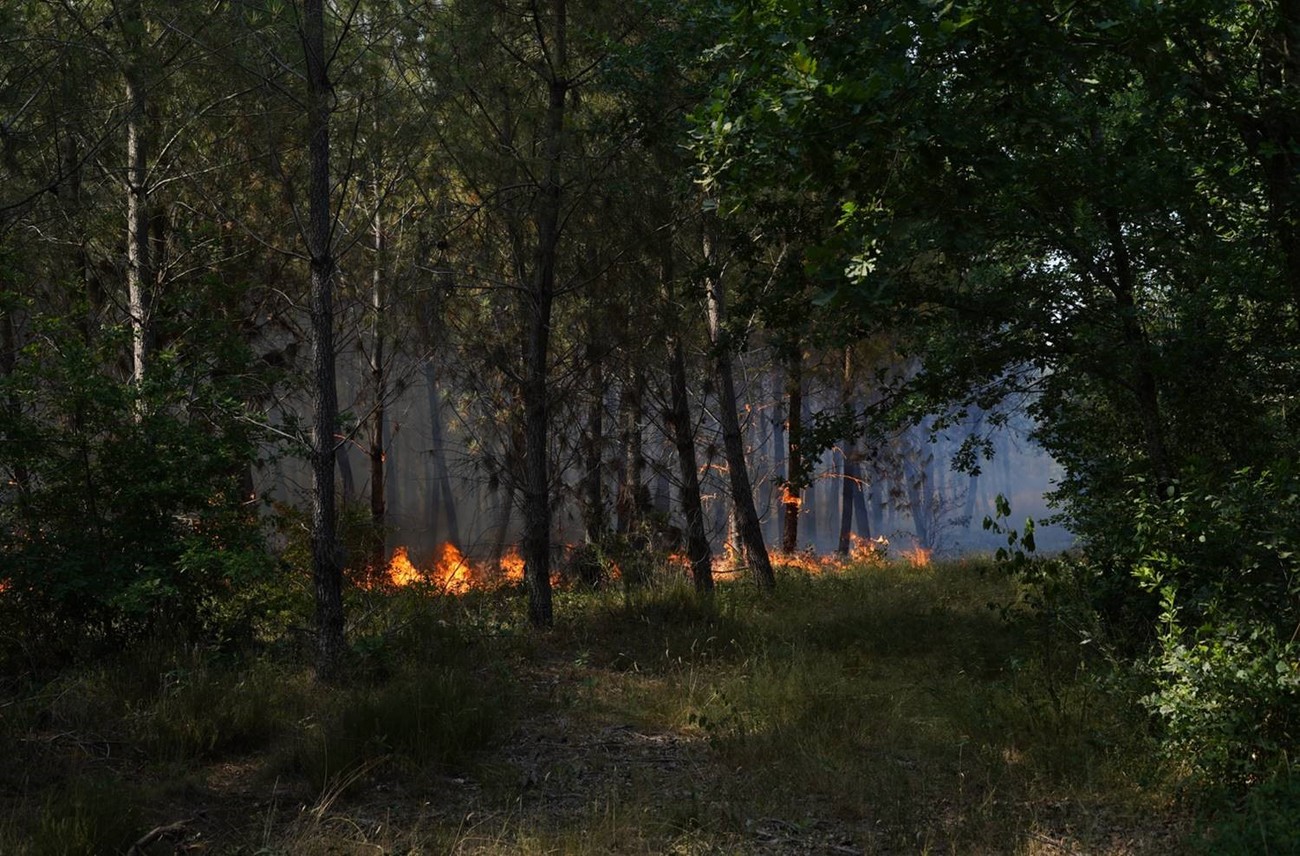fires in France: ifaw calls for inclusion of animals in disaster management efforts
fires in France: ifaw calls for inclusion of animals in disaster management efforts

Major fires have been burning in Gironde in the southwest of France for nearly a week. The situation continues to deteriorate and firefighters are operating in extremely unfavorable weather conditions. More than 32,000 people have already left their homes and new evacuations are still in progress.
However, wildlife, livestock or pets are also highly impacted by these unusual fires. IFAW is working with governments and authorities across Europe to ensure that animals are included in all disaster and evacuation planning.
The impact of fire on wildlife
Fires have a significant impact on wildlife. For many wild animals, their keen sense of smell and awareness of their environment allows them to notice when a fire starts. However, due to global warming and climate change, the frequency and intensity of fires are increasing dramatically and making it more difficult for wildlife to survive during such events.
Smoke inhalation, burns and loss of habitat are the main threats faced by wild animals. In fleeing a disaster area, animals are also exposed to other dangers, such as collisions with vehicles.
"Wildlife rescued from a disaster such as a fire are traumatized by what they have experienced. They are very often injured and have been torn away from everything they were familiar with," says Céline Sissler-Bienvenu, Program Manager for IFAW's Disaster Response & Risk Reduction work in Europe.
Beyond the immediate effects and losses, fires can actually weaken and threaten the long-term survival of a species as well. If their habitat is too badly damaged, some species may miss one or more breeding seasons. In addition, destruction by fire represents a real challenge for species using the same nesting, breeding or hibernation sites year after year.
IFAW therefore encourages local stakeholders to conduct regular wildlife population surveys and risk assessments to increase their resilience to fire. Assessing a species' recovery mechanism also allows authorities and caregivers to plan more effectively for the next disaster. With this knowledge, responders can improve their techniques and be more effective in rescuing trapped wildlife.
The importance of evacuating animals with their owners
Pets are considered to be part of the family and livestock are vitally important for economic reasons. Increasingly, even in case of immediate danger, we see that people will refuse to evacuate and leave their house if that means they have to abandon their animals. Sometimes they will also come back to a disaster area to recover their animals without authorization and before it is actually safe to do so.
On 14 July, the inhabitants of Cazaux were evacuated without their animals, not knowing when they would be able to come back to get them and if they would then still be alive. Thanks to a coordinated operation by local parties, these people were able to find their animals a few days later, but soon after the convoys for the evacuation of animals had to be stopped again because of fires resuming in the area.
"The reunification of pets with their families is essential to regain some stability and security for both the animal and its human protector," adds Céline Sissler-Bienvenu. “When people who have had to flee without their pets return home and discover that their pets are dead or missing, they have more difficulty rehabilitating and resuming a normal life than those who find their pets alive and well.”
Rescuing pets and livestock is vital to the resilience of local communities, both during and after a disaster. IFAW therefore calls on European governments and other stakeholders to properly plan for the evacuation of animals and the sheltering of pets with their owners. Disaster management actors need to work closely together with animal welfare organizations and veterinarians to integrate animals and animal care into pre- and post-disaster planning efforts.
ifaw is ready to support animals affected by the fires
Since the start of the fires in Gironde in France, IFAW has been closely monitoring the situation and identifying needs on–the-ground by contacting local authorities and animal welfare organizations. To apply for an emergency grant to help animals threatened by the fires, local stakeholders can send their requests via email to europedisasters@ifaw.org.
Related content
Every problem has a solution, every solution needs support.
The problems we face are urgent, complicated, and resistant to change. Real solutions demand creativity, hard work, and involvement from people like you.